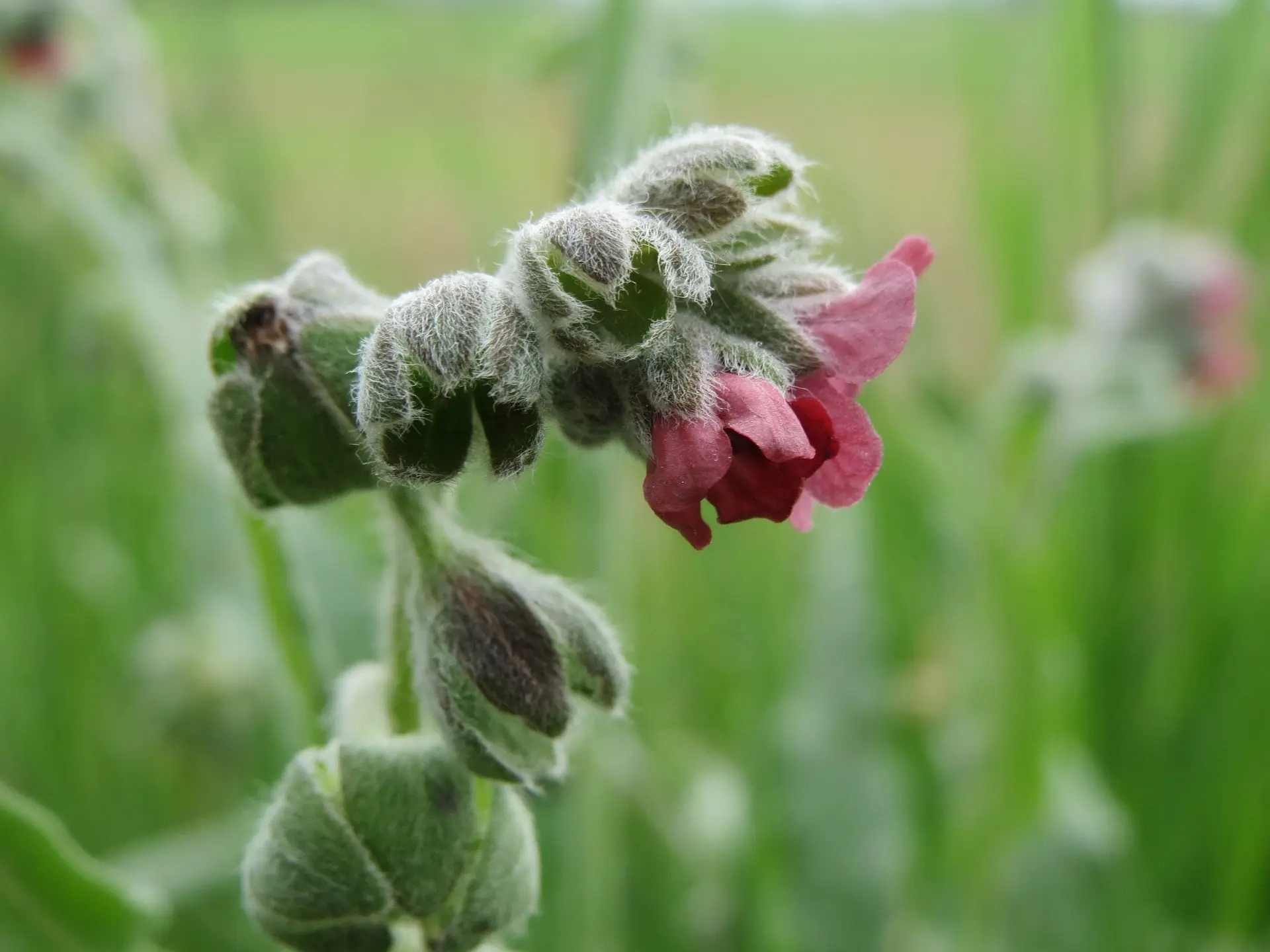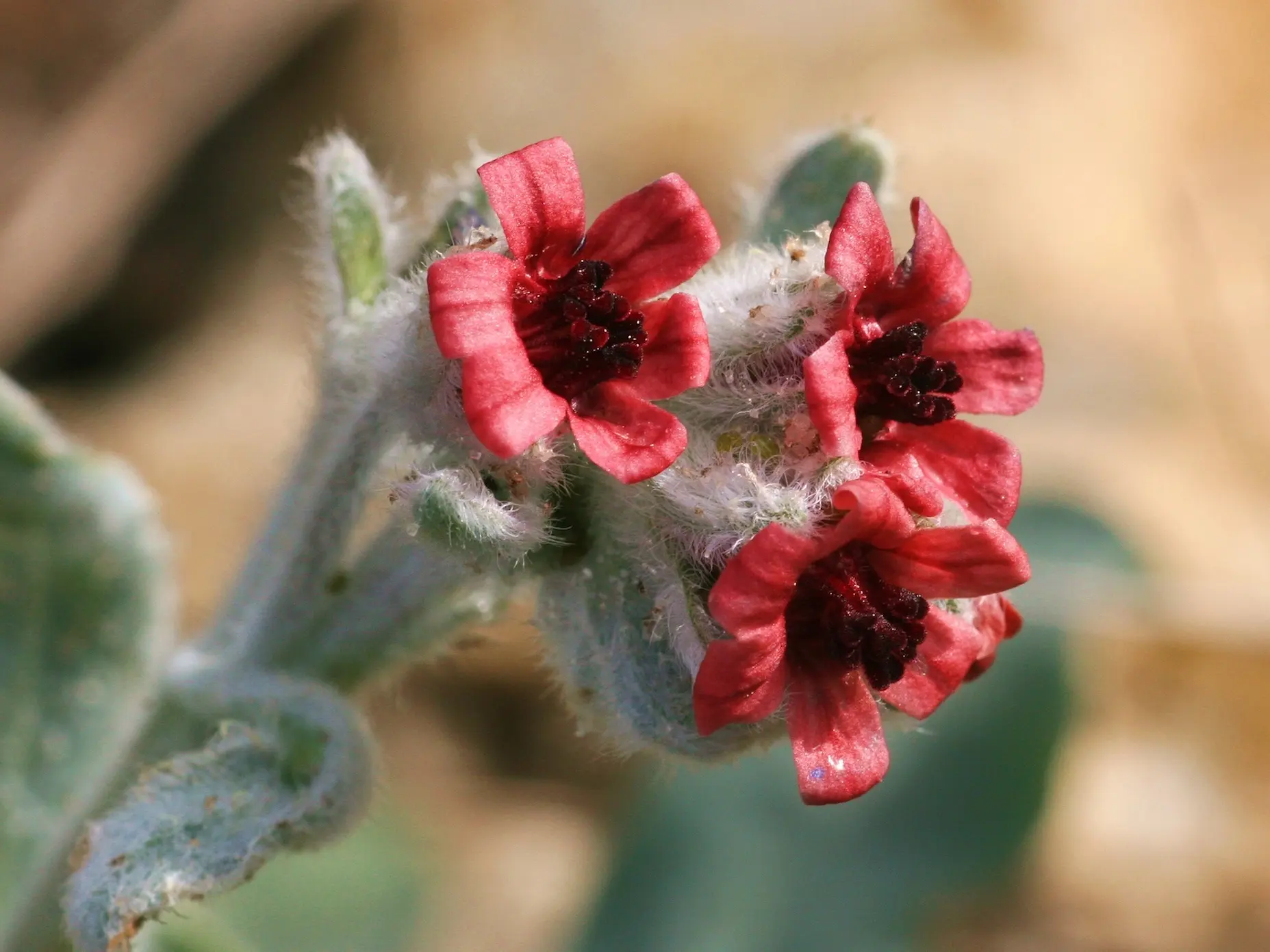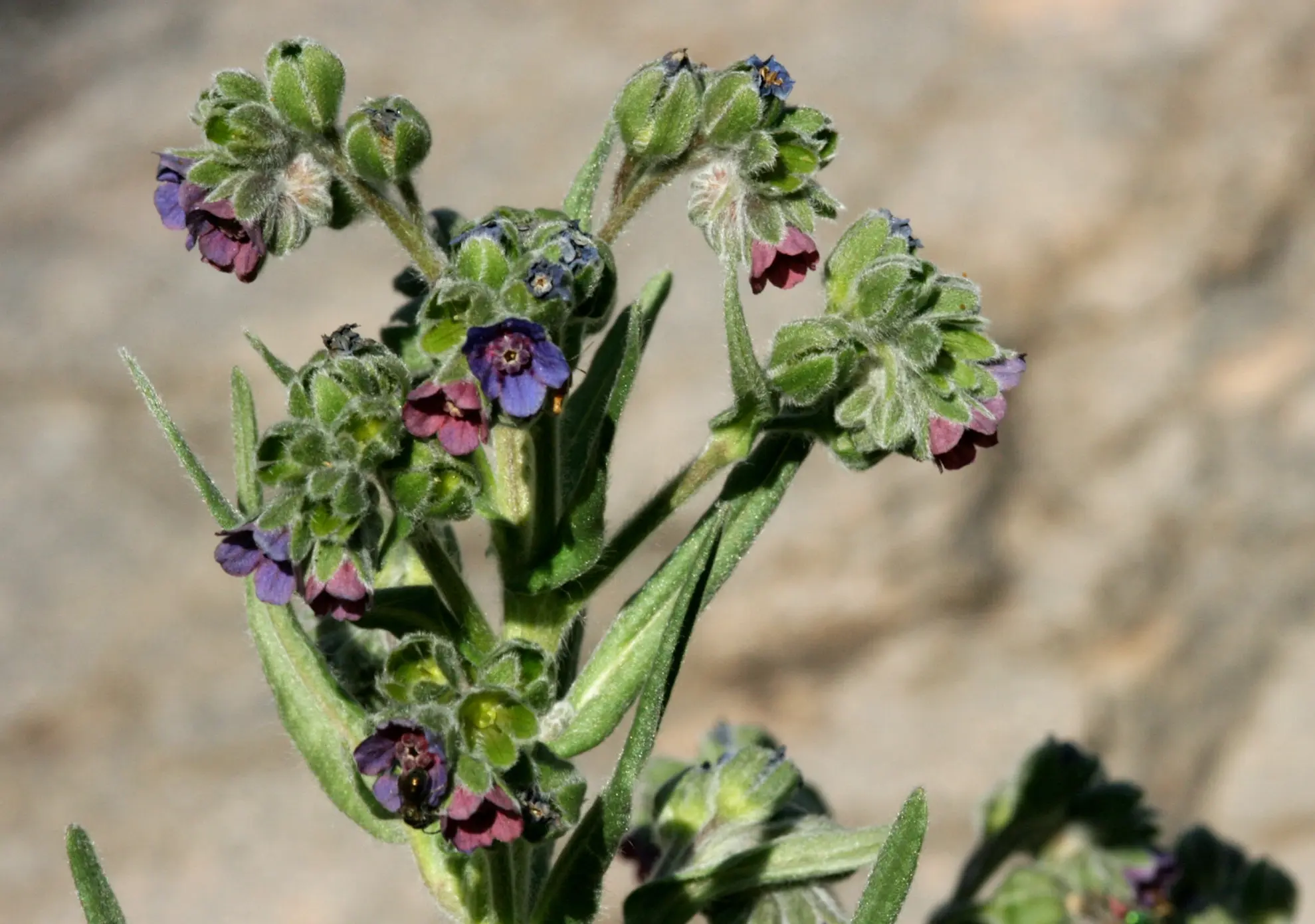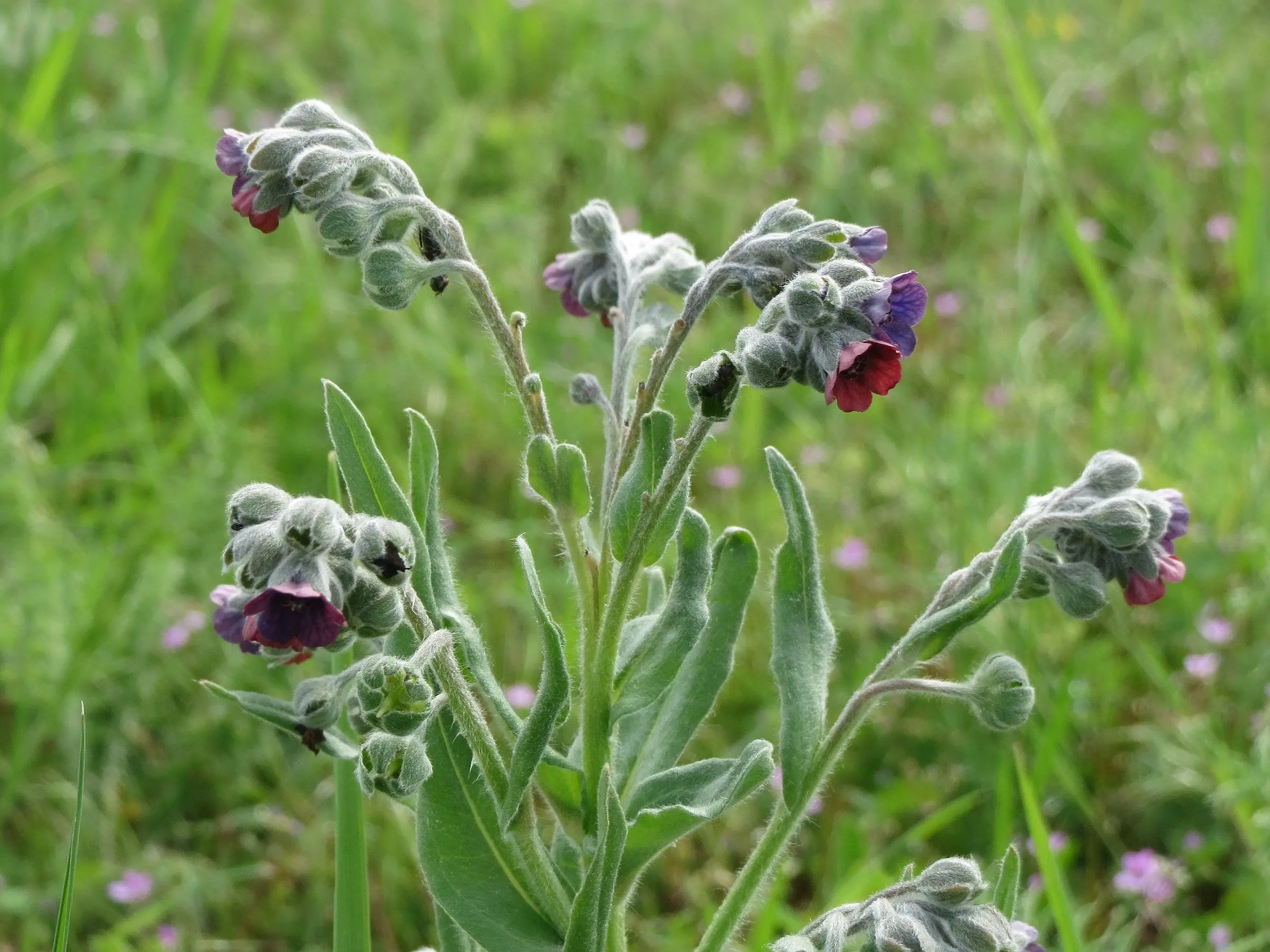
Names
Cynoglossum, Wild Comfrey, Chinese Forget-me-not
Description
Biennial that grows to 4 feet. Leaves are tongue shaped and alternate up the stem. Flowers are red / purple / blue and grow at the end of the stem. Fruit is a pod covered with barbs.

Concern Level
Only during drought conditions, unpalatable, can be incorporated into hay.
Toxic Parts
All parts of the plant are toxic, particularly so in the rosette stage.

Symptoms
Lack of appetite, weakness, yawning, diarrhea, photosensitivity, weight loss, lack of coordination, jaundice of mucous membranes, aimless walking, chewing motion.
Danger
Contains pyrrolizidine alkaloids which cause liver failure, called “walking disease” or “sleepy staggers”. Can be fatal.

More Information
*It should be noted that we are not veterinarians. This information is written specifically for horses and should be used for reference purposes only. If you think your horse has eaten something toxic call your vet right away.